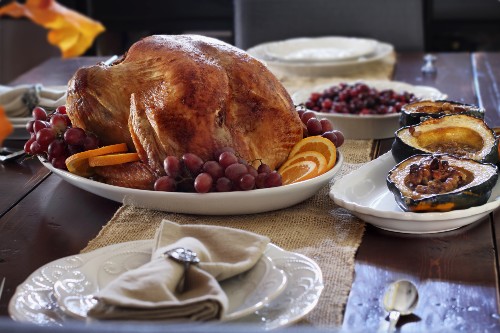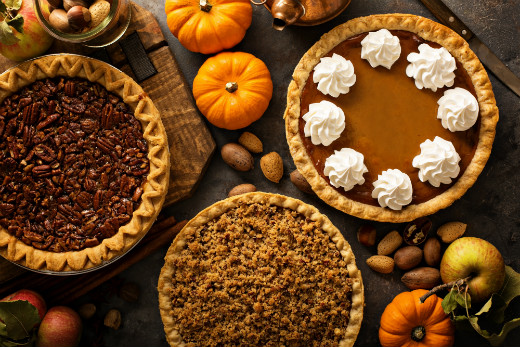Is it kosher for Jews to celebrate Thanksgiving? The answer to that question largely depends on who one asks because there are communities where eating turkey and pumpkin pie is the norm and there are communities where such would be unheard of. And that’s okay.
The issue behind this matter is Leviticus 18:3, in which the Torah commands us not to copy other nation’s ways. The parameters of this law are not narrowly defined, so different authorities will naturally differ on some of the details. One thing we all agree on is that we are not permitted to celebrate holidays whose origins lie in other religions. While Christmas is obviously the first to come to mind, holidays like Halloween, St. Patrick’s Day and Mardi Gras are also religious in nature, commercialized though they may have become in popular culture. We are not permitted to observe these holidays as they are expressions of other faiths. (It’s not about partying! The same would be true of fasting for Ramadan in solidarity with our Muslim friends. We might generally be permitted to fast if we so choose, but not if one’s intention is to emulate another religion’s observance.)
The question regarding Thanksgiving is as follows: Is being of secular origin the same as being “non-Jewish?” This is where the authorities differ. Rav Yitzchak Hutner ruled that any holiday established according to the Gregorian calendar is de facto a non-Jewish holiday and is prohibited. There are certainly those who follow this position, but there are other, equally great authorities whose opinions are otherwise.

Rav Moshe Feinstein addressed the question of Thanksgiving several times, always concluding that it is a secular holiday and not a religious one. Thanksgiving is popularly attributed to the Pilgrims (who were English Dissenters, which was a breakaway faction from the Church of England) but even if they did institute the holiday, it was never intended as a religious obligation. They had plenty of coreligionists back in England who did not observe this holiday, which was no shortcoming of faith on their part. No religion ever required its adherents to eat turkey, stuffing and cranberry sauce on the Thursday preceding the last Saturday of November.
Rabbi Joseph B. Soloveitchik also ruled that Thanksgiving is a secular holiday, not a religious one, so eating turkey would be permissible. His students report that he always ended class early on Thanksgiving, presumably so that he could fly home from New York to Boston to participate in a family meal.
There are also some nuanced opinions on the subject. Rav Yehuda Herzl Henkin, for example, advised that one should skip the Thanksgiving meal every few years in order to demonstrate that he does not consider it an obligation. Even Rabbi Feinstein, who permitted observing Thanksgiving, said that particularly pious individuals should refrain.

There is a wide range of positions but, for practical purposes, since Thanksgiving is celebrated by Americans of all faiths and is of religious significance to no denomination, it is “not Jewish” but not “un-Jewish.” If one wants to get together with family and friends for turkey and stuffing, there is certainly who to rely upon. As always, however, one should be sure to consult with his or her own rabbi regarding matters of religious observance.





